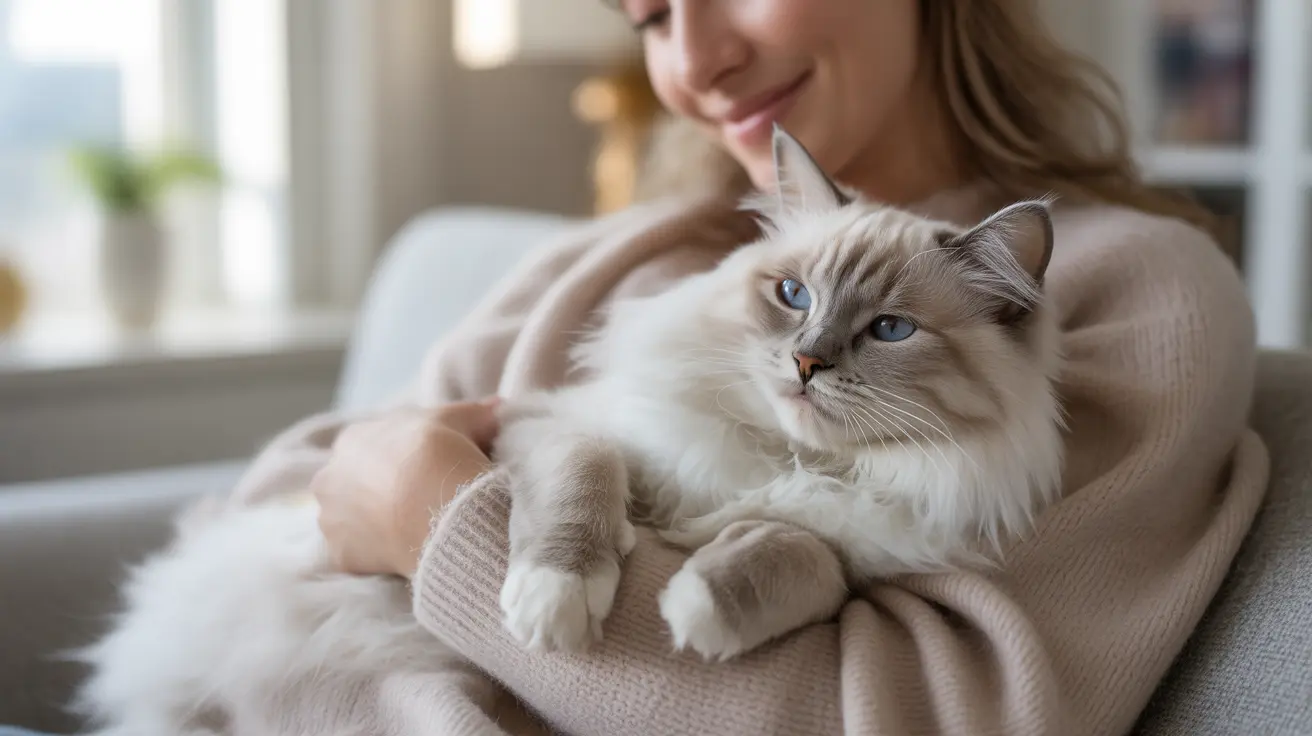The Power of Trust and Affection
When your cat chooses to lay on your chest, they're displaying a remarkable level of trust. Cats are naturally cautious creatures, and exposing their vulnerable belly while sleeping indicates they feel completely safe with you. This positioning makes them temporarily defenseless, so choosing your chest as a resting spot is one of the highest compliments a cat can give.
The behavior often stems from kitten memories, when they would sleep piled together with their littermates and mother for warmth and security. By choosing your chest, your cat is essentially treating you as part of their family group.
The Comfort of Warmth and Heartbeat
Your chest provides two irresistible features for cats: warmth and rhythm. Cats naturally seek out warm spots to conserve energy, and the human chest, typically maintaining a temperature around 98.6°F, offers an ideal heating pad. Additionally, your heartbeat creates a soothing rhythm that can remind them of their mother's heartbeat from kittenhood.
This combination of warmth and rhythmic sound creates an extremely comfortable environment that cats find hard to resist, especially during colder months or when seeking relaxation.
Scent Marking and Territory
When your cat settles on your chest, they're also engaging in subtle territorial marking. Cats have scent glands on their faces and paws, and by lying on you, they're leaving their unique scent signature. This behavior isn't about ownership in a possessive sense, but rather about marking you as a safe, familiar part of their environment.
Health Benefits for Both Cat and Human
The act of a cat lying on your chest can have surprising health benefits for both parties. For cats, close contact with their trusted human can lower stress levels and promote relaxation. For humans, the gentle weight and rhythmic purring of a cat (which typically occurs at frequencies between 25-150 Hz) can help reduce blood pressure and anxiety levels.
When to Monitor This Behavior
While chest-laying is generally normal and healthy, sudden changes in this behavior might warrant attention. If your typically independent cat suddenly becomes clingy and wants to lay on your chest more frequently, it could indicate anxiety, illness, or environmental stress. Similarly, if your cat seems distressed while seeking this contact, consulting with your veterinarian might be wise.
Frequently Asked Questions
Why does my cat choose to lay specifically on my chest instead of other parts of my body?
Your chest is appealing to cats because it provides warmth, a steady heartbeat rhythm, and a stable surface. The position also allows them to monitor their environment while staying close to your face, where they can feel your breath and receive immediate attention.
Is my cat laying on my chest a sign of affection or is it marking me as territory?
It's actually both. The behavior demonstrates affection through trust and bonding while also allowing them to mark you with their scent, identifying you as a safe, familiar part of their territory.
How does laying on my chest help my cat feel safe and reduce stress?
Your steady heartbeat, warmth, and familiar scent create a calming environment that reminds cats of their mother's presence during kittenhood. This combination naturally reduces their stress levels and promotes relaxation.
Can my cat's purring while on my chest have health or calming benefits for me?
Yes, cat purring at specific frequencies has been shown to reduce stress, lower blood pressure, and potentially even promote healing in human tissue. The weight of the cat can also have a calming effect similar to a weighted blanket.
What should I do if my cat's habit of lying on my chest disrupts my sleep or comfort?
You can redirect this behavior by providing alternative warm sleeping spots nearby, such as a heated cat bed or a soft blanket next to your pillow. Gradually encourage your cat to use these alternatives while maintaining other forms of bonding and attention.
Understanding why your cat chooses to lay on your chest can deepen your appreciation for this special bond. Whether seeking warmth, comfort, or simply showing their trust and affection, this behavior represents one of the many unique ways cats express their connection with their human companions.






